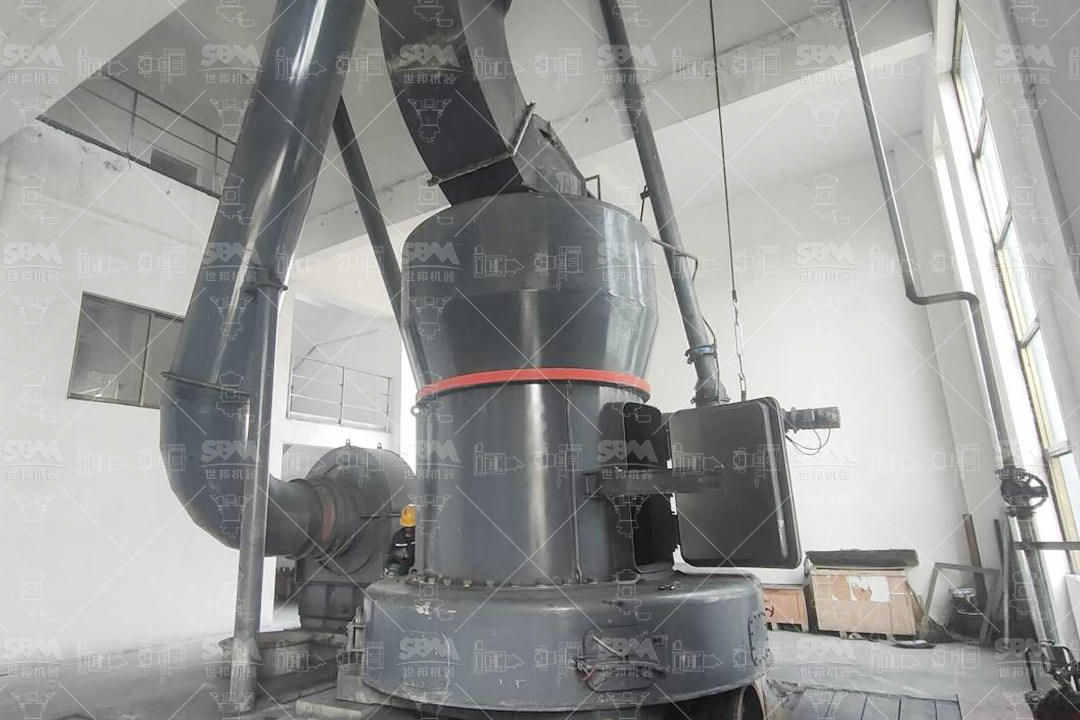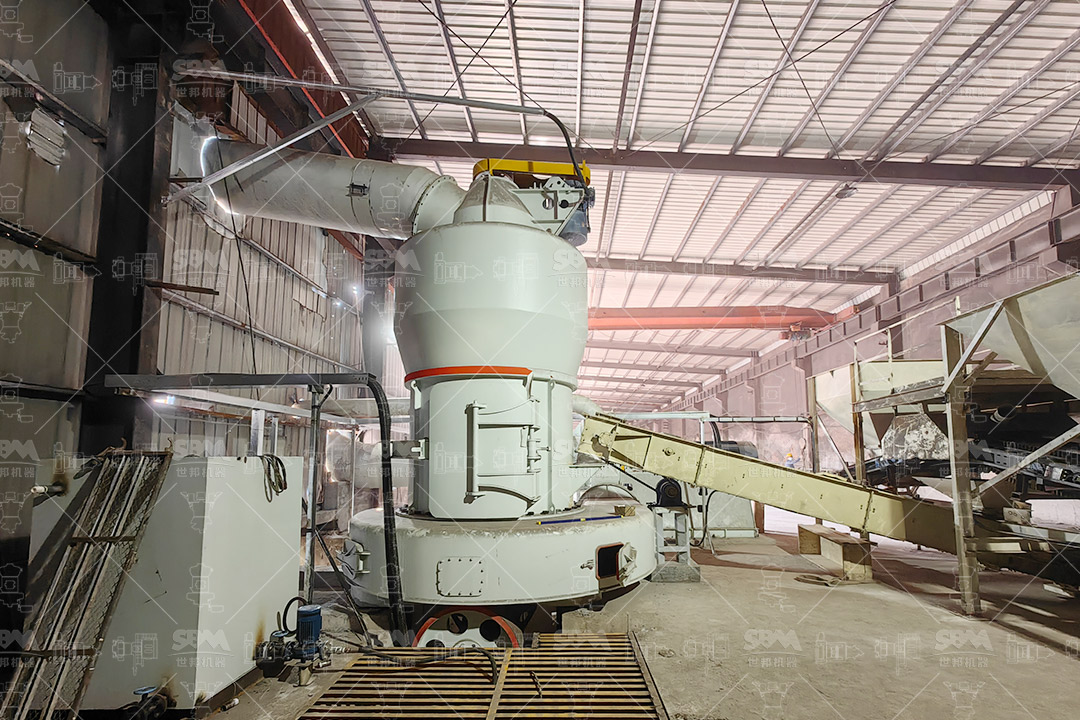September 24, 2025
Introduction
The manufacturing of high-quality industrial gypsum boards demands precise control over raw material properties, particularly the fineness and particle size distribution of gypsum powder. The quality of the final product—encompassing strength, surface smoothness, fire resistance, and dimensional stability—is intrinsically linked to the efficiency and sophistication of the grinding process. Traditional milling equipment often falls short in achieving the stringent specifications required for modern, high-performance boards. This article explores the critical role of advanced ultrafine milling technology in optimizing gypsum processing, with a focus on how specific mill characteristics directly influence board quality, production efficiency, and operational sustainability.

The Importance of Gypsum Fineness in Board Manufacturing
Gypsum (CaSO₄·2H₂O), when calcined, becomes calcium sulfate hemihydrate (CaSO₄·½H₂O), commonly known as plaster of Paris. The reactivity, setting time, and ultimate strength of this material are profoundly affected by its particle size. Finer gypsum particles possess a larger specific surface area, leading to faster dissolution and more complete rehydration during the setting process. This results in a denser, more homogeneous crystal structure within the board core.
Key Benefits of Ultrafine Gypsum Powder:
- Enhanced Board Strength: A finer particle size promotes the formation of a stronger interlocking matrix of gypsum crystals, significantly improving the flexural and compressive strength of the finished board.
- Superior Surface Finish: Ultrafine powder allows for a smoother paper-to-core bond and a more uniform surface, which is critical for direct decoration or painting.
- Controlled Setting Time: Precise control over fineness enables manufacturers to fine-tune the setting characteristics to match production line speeds.
- Reduced Water Demand: Optimized particle packing can lower the water-to-stucco ratio, leading to shorter drying times and reduced energy consumption in the kilns.
Challenges in Conventional Gypsum Grinding
Many production facilities still rely on ball mills or older Raymond mill designs. While functional for coarser applications, these systems present significant limitations for high-quality board manufacture. Common issues include:
| Challenge |
Impact on Board Quality |
| Broad Particle Size Distribution |
Inconsistent setting, weak spots, and surface imperfections. |
| High Energy Consumption |
Increased production costs and carbon footprint. |
| Excessive Heat Generation |
Risk of premature calcination and dehydration of gypsum in the mill. |
| Limited Fineness Control |
Inability to consistently achieve the 200-325 mesh (D97) range required for premium boards. |
| High Maintenance Downtime |
Frequent wear part replacement disrupts continuous production. |
The Ultrafine Milling Solution: Technological Advancements
Modern ultrafine mills are engineered to overcome these challenges. They integrate principles of material bed comminution, precision air classification, and intelligent process control to deliver superior performance. The core of this technology lies in applying compressive stress to a bed of material between grinding elements, which is far more efficient than the impact-based crushing of traditional mills.

Critical Technological Features:
- Precision Classification Systems: Integrated dynamic classifiers allow for real-time adjustment of the cut point, ensuring a tight particle size distribution and eliminating coarse particles that can act as failure initiation points in the board.
- Efficient Grinding Mechanics: The use of multiple rotating rollers applying pressure to a stationary grinding ring or table creates a highly efficient crushing zone with minimal energy loss to heat and noise.
- Advanced Control Systems: PLC-based automation continuously monitors power consumption, feed rate, and classifier speed to maintain optimal operating conditions and consistent product quality.
- Durability and Wear Resistance: Critical components like rollers and grinding rings are manufactured from high-chromium alloys or ceramic composites, offering extended service life even with the abrasive nature of gypsum.
Product Spotlight: SCM Series Ultrafine Mill for Premium Gypsum Boards
For manufacturers targeting the high-end industrial board market, where fineness requirements often exceed 325 mesh, the SCM Series Ultrafine Mill represents an ideal solution. This mill is specifically designed to produce powders in the range of 325-2500 mesh (45-5μm), making it perfectly suited for achieving the exceptional smoothness and strength required by modern specifications.
Why the SCM Ultrafine Mill Excels in Gypsum Processing:
- Unmatched Fineness: With an output fineness of D97 ≤ 5μm, the SCM mill can produce gypsum powder that significantly enhances the core properties of industrial boards.
- High Efficiency & Energy Savings: Its unique grinding mechanism delivers a capacity twice that of jet mills while reducing energy consumption by up to 30%, directly lowering production costs.
- Intelligent Control: The mill features an automatic feedback system that monitors and adjusts the final product size in real-time, ensuring batch-to-batch consistency.
- High-Precision Classification: A vertical turbine classifier provides precise particle size切割 (cutting), preventing coarse powder contamination and guaranteeing a uniform product.
- Durability and Stability: The use of special material rollers and grinding rings, combined with a bearingless screw grinding chamber, ensures stable operation and a service life several times longer than conventional mills.
- Environmental Compliance: With a pulse dust collection efficiency exceeding international standards and noise levels below 75dB, the SCM mill supports sustainable and worker-friendly manufacturing practices.
| Model |
Processing Capacity (ton/h) |
Main Motor Power (kW) |
Output Fineness (mesh) |
| SCM800 |
0.5 – 4.5 |
75 |
325 – 2500 |
| SCM900 |
0.8 – 6.5 |
90 |
| SCM1000 |
1.0 – 8.5 |
132 |
| SCM1250 |
2.5 – 14 |
185 |
| SCM1680 |
5.0 – 25 |
315 |
A Versatile Alternative: The MTW Series Trapezium Mill
For large-scale production lines where the primary requirement is high volume output of gypsum powder in the 30-325 mesh range, the MTW Series Trapezium Mill offers an excellent balance of capacity, efficiency, and reliability. Its robust design and innovative features make it a workhorse for standard and moisture-resistant board manufacturing.
Key Advantages of the MTW Series for Gypsum Grinding:
- High Capacity: With models offering throughput from 3 to 45 tons per hour, the MTW series is built for continuous, high-volume production.
- Anti-Wear Design: The curved wind channel and wear-resistant shovel blade design minimize maintenance costs and extend the life of critical components.
- Optimized Airflow: The curved air channel reduces energy loss and improves transmission efficiency, contributing to lower operational costs.
- Integrated Gear Drive: The conical gear overall transmission system boasts 98% efficiency, saving space and reducing installation complexity.
The MTW series is particularly well-suited for processing natural gypsum rock and can handle feed sizes up to 50mm, simplifying the pre-crushing circuit.
Integrating Ultrafine Mills into the Production Line
The successful implementation of an ultrafine mill requires careful consideration of the entire process flow. Key integration points include:
- Raw Material Preparation: Ensuring consistent feed size (typically ≤20mm for SCM mills) through primary and secondary crushing.
- Drying: Integrating a dryer before the mill if the gypsum feedstock has high moisture content to prevent clogging and ensure grinding efficiency.
- Calcination: The ultrafine powder is then fed into a calciner (kettle, rotary kiln, or flash calciner) to produce stucco. The uniformity of the raw powder leads to more consistent calcination.
-
- Board Forming: The high-quality stucco is mixed with water and additives to form the board core.

Economic and Environmental Benefits
Investing in advanced grinding technology like the SCM or MTW series delivers substantial returns beyond product quality.
- Reduced Operating Costs: Significant energy savings (up to 30-40%) directly lower electricity expenses. Reduced wear part consumption and less frequent maintenance further decrease operational expenditures.
- Increased Production Uptime: The high reliability and durability of these mills minimize unplanned shutdowns, maximizing plant utilization and output.
- Enhanced Sustainability: Lower energy consumption translates to a reduced carbon footprint. Advanced dust collection systems ensure emissions are well below regulatory limits, promoting a cleaner production environment.
- Waste Reduction: Consistent product quality reduces the rate of off-spec board production, minimizing material waste.
Conclusion
The pursuit of excellence in industrial gypsum board manufacturing is increasingly dependent on the precision and efficiency of the grinding process. Ultrafine milling technology is no longer a luxury but a necessity for producers aiming to compete in markets that demand superior product performance. The SCM Series Ultrafine Mill, with its ability to produce exceptionally fine and consistent gypsum powder, is a key enabler for manufacturing high-strength, smooth-finish boards. For large-scale operations, the MTW Series Trapezium Mill provides a robust and efficient solution for high-volume output. By adopting these advanced milling solutions, manufacturers can optimize their entire process, achieving significant gains in product quality, operational efficiency, and environmental stewardship, thereby securing a strong competitive advantage in the global building materials industry.


